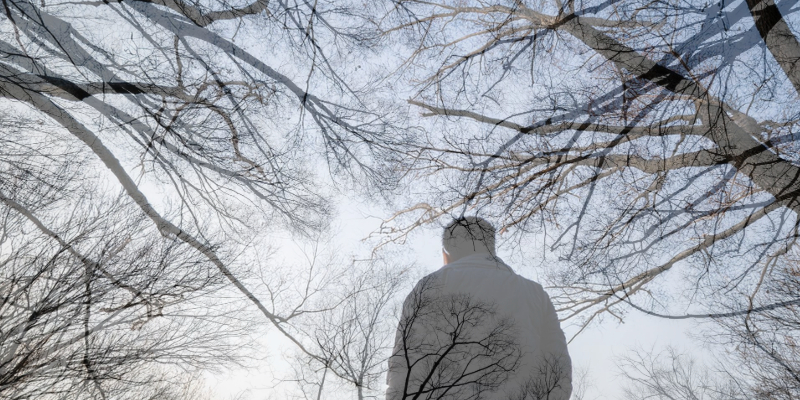Winter depressionAlso known as Seasonal Affective Disorder (SAD), it affects many people during the colder months of the year, especially in areas with short sunshine times. Symptoms such as lack of energy, apathy, an increased need for sleep, and a depressed mood can significantly affect your daily life. One form of therapy that can effectively help manage winter depression is psychodynamic psychotherapy.
What is psychodynamic psychotherapy?
Psychodynamic psychotherapy It is a therapeutic approach that focuses on detecting and overcoming the unconscious conflicts that affect our emotions and behavior. It is based on the assumption that many of our mental health problems are rooted in the past, especially in childhood relationships that shape our patterns of thinking and acting.
In the context of winter depression, psychodynamic psychotherapy can help you understand what defense mechanisms you use to deal with depressed mood, and what uninformed factors may affect the severity of your symptoms.
How does psychodynamic psychotherapy help with winter depression?
- Identifying hidden emotional patterns
Psychodynamic psychotherapy allows you to analyze repetitive mental and emotional patterns. In the case of winter depression, this can help you understand why certain periods of the year affect your mood so much. - Working on protective mechanisms
Winter depression often involves protective mechanisms, such as social withdrawal or denial of the severity of the situation. The therapist helps you recognize these mechanisms and find more adaptive ways to deal with difficulties. - Strengthening interpersonal relationships
Winter depression can lead to isolation, which further exacerbates feelings of loneliness. Psychodynamic therapy focuses on relationships and helps improve communication and build healthier connections with loved ones. - Overcoming internal conflicts
Unconscious conflicts, such as the need for acceptance versus the fear of rejection, can exacerbate the symptoms of depression. Psychodynamic psychotherapy allows them to work in a safe environment.
Winter depression-how else can you help yourself?
Winter depression, also known as seasonal affective disorder, requires a comprehensive approach to effectively relieve its symptoms. In addition to psychodynamic psychotherapy, there are many other methods that can help improve your well-being and quality of life in winter.
Light therapy
Light therapy (phototherapy) is one of the most effective treatments for winter depression. It consists of daily use of lamps that emit high-intensity light (about 10,000 lux).
- How does it work? Light affects the regulation of circadian rhythm and increases serotonin production, which improves mood and energy levels.
- How to use it? Sessions should last 20 to 30 minutes a day, preferably in the morning, to mimic natural sunlight.
Physical activity
Exercise is a natural way to improve your well-being, especially in winter.
- How does it work? Physical activity increases the production of endorphins, the happiness hormones, and also helps reduce stress and emotional stress.
- What should I choose? Even a walk in the fresh air, yoga, cycling indoors or dancing at home is enough. Regular exercise brings the best results.
A balanced diet
Diet plays a key role in mental health, especially in winter when natural sun exposure is limited.
- Foods rich in vitamin D: Fatty fish (such as salmon, mackerel), eggs, and dairy products fortified with vitamin D.
- Omega-3 Fatty Acids: Walnuts, flaxseed, fish oil.
- Magnesium: Nuts, spinach, and cocoa.
- Complex sugars: Wholegrain foods that help stabilize blood sugar levels and maintain energy balance.
Pharmacological support
In more severe cases of winter depression, a psychiatrist may recommend pharmacotherapy.
- What medications? Selective serotonin reuptake inhibitors (SSRIs) are often used, which increase serotonin levels in the brain.
- Why is it worth it? Drug therapy is effective when symptoms interfere with daily functioning, and other methods do not bring the expected effect.
Daily outdoor activities
Despite the cold and short days, regular walks in the fresh air can significantly improve your mood.
- Why does this work? Even a minimal amount of natural light has a beneficial effect on the production of melatonin and serotonin.
- How to do it? Walking at noon, when the light is most intense, can bring additional benefits.
Maintaining a regular sleep rhythm
Winter depression often leads to an increased need for sleep or difficulty falling asleep.
- How to improve your sleep? Try to go to bed and get up at a consistent time, avoid caffeine in the evening and ensure a comfortable environment in the bedroom.
- Why is this important? Regular sleep stabilizes the circadian rhythm, which helps regulate mood.
Relaxation techniques and stress reduction
Practices such as Christian meditation and deep breathing can help reduce stress and tension.
- How do I get started? Even a few minutes a day devoted to relaxation can significantly improve your well-being.
Maintaining social contacts
Isolation is one of the main triggers of winter depression.
- Why is this important? Regular meetings with family and friends help counteract feelings of loneliness, and emotional support improves mood.
- How to do it? Even a phone call or video conference call can be valuable support.
Activity planning and goal setting
Winter is a time when we often lose motivation to take action.
- How can I change this? Plan small activities for each day that bring you joy, such as reading a book, baking, or learning something new. Setting realistic goals gives you a sense of control and achievement.
Using online Psychotherapy
If access to inpatient therapy is difficult, consider online sessions.
- Why is it worth it? Online psychotherapy allows you to meet with a therapist regularly, regardless of the weather or location.
- How do I get started? Contact a certified therapist who offers online sessions to get support for dealing with winter depression.
Resume
Psychodynamic psychotherapy is an effective form of helping people who are struggling with winter depression. This helps you understand the unconscious thinking patterns and actions that affect your mood, and learn more constructive ways to overcome difficulties. If the winter months are taking the joy out of your life, it may be worth considering therapy and other support methods to help you get through this difficult time. Remember that help is available, and the key to improvement is to take action.







